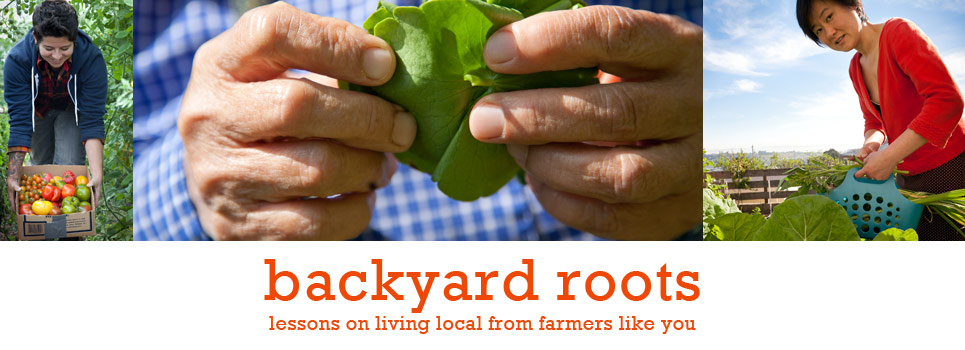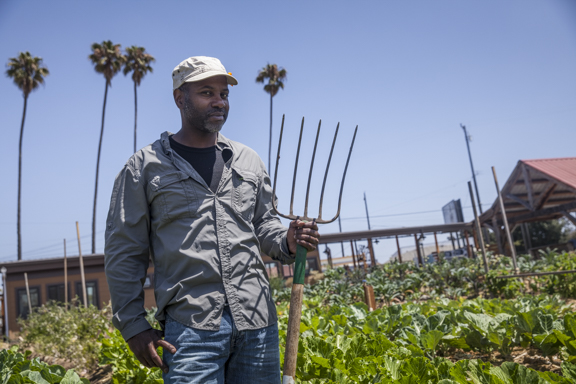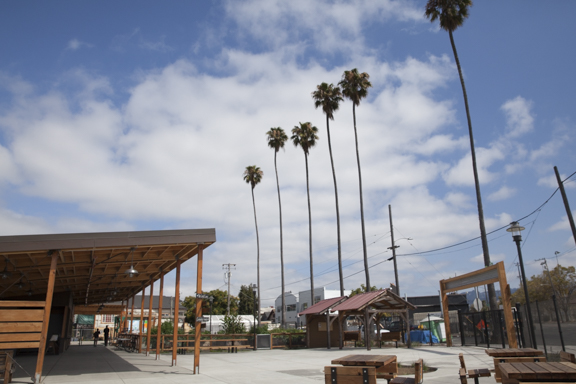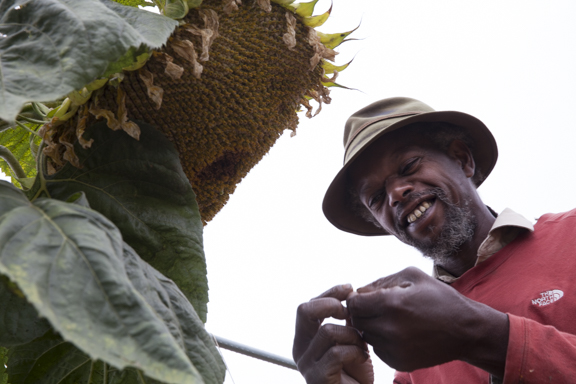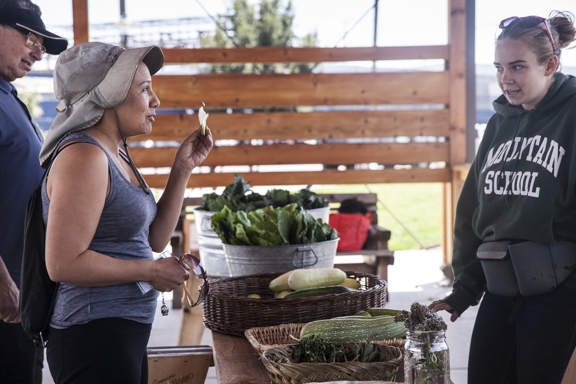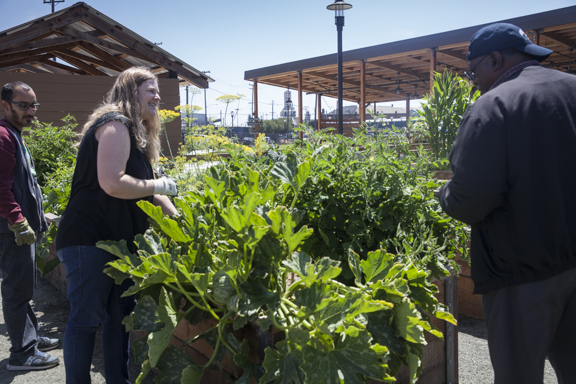There’s a difference when you walk into to West Oakland’s newest park. The plaza beckons with its lush grass. There’s picnic tables and a playground, but surrounding the park is something else. It’s familiar but unexpected. Vegetables. The newest park in West Oakland is also a farm. Kale, collards, cucumbers, beans, and tomatoes surround the central plaza and a 28 raised-bed community garden line the fence. A newly planted orchard has taken root on the southern edge and on the opposite end is a chicken coop with 20 young hens. If you stop by Saturday you can buy freshly harvested produce from the City Slicker Farm Stand on a sliding scale.
Located at 28th and Peralta Streets, West Oakland Farm Park is a public space with a working farm and a community mission. Open daily from 10am to 7pm, executive director Rodney Spencer says it’s all here for the neighborhood of West Oakland. Once a food desert with nothing but liquor stores and industry, City Slicker was able to obtain the 1.4 acre site through a $4 million dollar grant from Proposition 84. The statewide bond not only funds safe drinking water, water quality and supply, flood control, but also seeks to revitalize disadvantaged communities making them more sustainable and livable by investing in local parks and urban greening. Because City Slicker farms is a non-profit and willing to include public access with a park and restrooms within their farm they were able to obtain the grant.
Ever since the purchase last year, the farm park has been a hub of planning and building. The organization has partnered with many groups to make it a true community effort. A few examples of their partnerships include KaBOOM!, a national non-profit that put in the playground. In Good Company, a community service project of Clif Bar put in the woodshed, toolshed and farm stand. The Crucible made the iron farm gate. Art students from the California College of Arts painted the murals and architecture students from the same school designed the chicken coop.
The property’s main building will become the City Slicker Farm headquarters and houses a demonstration kitchen, an outdoor classroom, and a community rec center. City Slicker Farms is best known for its backyard garden program that helps neighbors grow food by building and installing raised backyard beds and mentoring the new gardeners to ensure success. In its 15 year history the group has installed over 300 raised beds for the community. The new site has a woodshop where they can make the 8 x 3½ foot frames. The site also hosts City Slicker’s youth summer crew program that hires 8 local teenagers teaching them urban agriculture and life skills. City Slicker’s cornerstone program, the community farm stand also takes place at the new site every Saturday starting at 10am. A sliding scale rate from $1-3 is a way to make sure there’s affordable healthy food for the neighborhood.
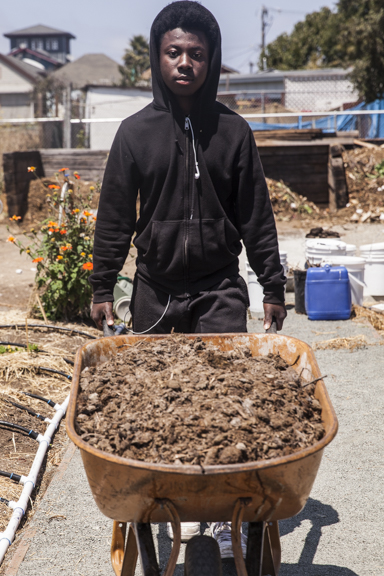
A youth crew teenager moves horse manure to the garden. The manure is donated from a stable in the Oakland Hills.
City Slicker has only six and a half paid positions in its organization. It relies on volunteers and community involvement. Thursdays and Saturdays are drop-in days where you can show up and help out. Farm manager Joseph Davis has just finished setting up the drip irrigation system for new beds with the help of his youth crew and volunteers. Because the soil on the site was contaminated, hundreds of yards of soil was replaced by clean topsoil. Joseph, a former teacher first worked with City Slicker back in 2009 as an intern. He then began mentoring and was the natural candidate for the farm manager position. “Being an urban farmer is very public,” he says. People come by and are interested in what’s going on. Those interested people often come back to help out.
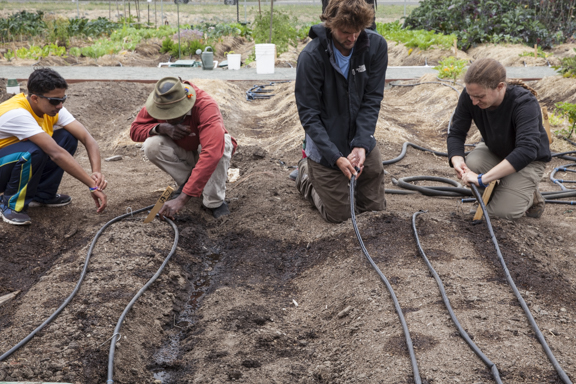
Joseph Davis(in red), farm manager works with the youth crew and volunteers to put in the drip irrigation system at West Oakland Farm Park
City Slicker latest goal is to reach out to local progressive organizations and neighbors that need community space. Cooking Matters already is using the space for classes and demos. The community garden is going strong providing raised beds for neighbors to garden. “We want West Oakland neighbors to have events here,” says executive director Rodney Spencer. “We’ve proven that you can grow food and improve the health and well being of the neighborhood. This land has been blighted and misused for decades. It’s time to give the land back.” Visit West Oakland Farm Park for inspiration and don’t forget to pick up some kale.
